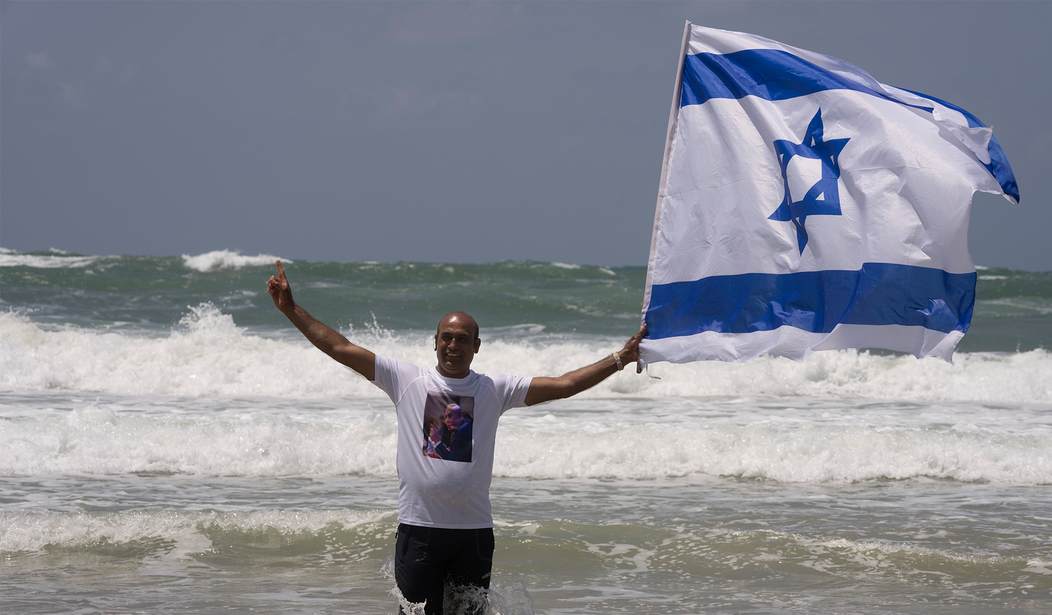Israel is different from most countries in one important way.
Just before I left Madison to start a Fulbright Fellowship in Jerusalem, I spoke to one of my professors. “Israel made a big mistake when it did not make English the official language.” And from his perspective, he was right. The country had been under British rule from 1919-1948, so English would have made perfect sense as a continuation for the fledgling state. His beef was that of a professional. In those days, Israelis often had awful English. My late father described it as people speaking with marbles in their mouths. As an international researcher, he would have found a presentation by an Israeli scientist hard to understand. While brilliant, they often could not be understood. I can attest today that pretty much everyone in Israel speaks some level of English, and those who deal in the international realm have outstanding English skills.
So why didn’t the founding fathers of the modern state of Israel go with English which would have hastened Israel’s international acceptance? Those involved in the formation of the state of Israel understood that their project was not just one of setting up a physical country with a lot of Jews in it. And while many of the early Zionists were not religious and some quite anti-religious, they understood that their program involved a rebirth of the Jewish people after the destruction of the Holocaust. Hebrew language, a Jewish calendar, and an emphasis on Jewish history were central to the program of setting up the new country. If one wants to do an oversimplified breakdown of the Jewish people at the time of the founding of Israel, it might be as follows: non-religious Zionists, religious Zionists, orthodox neither for nor against the State, orthodox opposed to the state on religious grounds. The Zionist project was to return a people to a land where they had always been in small numbers since the destruction of the Second Temple in the year 69 by Titus and his Tenth Legion. There was much to be done to bring the people and the land back to life after centuries of exile and the destruction of 1/3 of the Jewish people during the Second World War.
Commandments regarding the land and its produce that had not been in effect for nearly 2,000 years all of a sudden became relevant once again. Many books came out with differing opinions on tithing and the agricultural sabbatical year. For generations, none of the legal scholars in Poland or Morocco had to address these questions since only a handful of Jews lived in Jerusalem or Safed. Now, with large scale production of fruits and vegetables on farms throughout the country, the issues related to these subjects became urgent.
Recommended
Israel, like the United States, was thus begun as a type a project. Whereas the U.S. was a completely new arrangement of government in which the power of the leaders was severely limited in relationship to the power of the governed, Israel was a project to bring the Jewish people back to life after near total destruction in Europe. One commentator who looked at Jews and Judaism after the Holocaust said that there was nothing left to do but say the mourner’s prayer (kaddish), as the game was over. I doubt that too many who survived the extermination camps, went through the DP camps and then found a new home away from Europe would have imagined a country where Hebrew was spoken, where there are hundreds of Torah schools for all ages, where kosher food is plentiful, and where high tech has led to the blooming of the desert and satellites over Iran.
While I nodded in agreement with my former (and late) professor, I cannot stress the importance of Hebrew in the strengthening of the Jewish people. A 7-year-old child in Israel can pick up any book on Jewish law or history and read it immediately. He can understand what is discussed and learn copious amounts of material in his native language. I have seen the challenges in other countries where Hebrew is not the native language and is not spoken at home. I know it from my own youth: breaking one’s teeth to understand prayers and texts, having to look up every word studied. It is a major challenge for Jewish students outside of Israel and for their teachers and parents. Most make do, many spend time in Israel, and some just throw up their hands and give up. Making Hebrew the official language may have hurt Israel’s international position in its first few decades, but it brought to life Hebrew texts dating back hundreds and even thousands of years.
When I first arrived in 1992, I took a shuttle bus to Jerusalem. The whole way I just looked out the window and tried to imagine the days of Abraham or the years after the Jewish people entered the Land with Joshua. I could not keep my eyes off of what I saw. About a decade ago, we all went to the David’s City archaeological center. One can walk through a water tunnel built by King Hezekiah as described in 2 Kings 20:20. One needs a flashlight, and the water flows over your ankles all the way to the final Silwan pool at the end. Near the end of the tunnel, there is a place on the wall where one can see that a massive sign stood but was removed. It sits today in a Turkish museum. The sign marked the spot where the two digging parties met to complete the tunnel. I have been to Promontory Point in Utah, where America’s east-to-west railroad was completed with the Golden Spike. What I saw under the streets of Jerusalem was completed over 2,000 years earlier without the benefit of GPS or even above-ground directional guides. How they met at the same depth still amazes me. The Turks took the sign during their Ottoman rule and have no interest in giving back—however Jewish the subject and text.
Sunday night, a friend made a bar mitzvah in the town of Psagot. Where is Psagot? It’s in the “West Bank” and has as its crown jewel a winery that makes very high quality wines. Psagot is 30 minutes from downtown Jerusalem. A friend who lived there said that he could hear the roaring crowd from the Ramallah soccer stadium which is not that far away. How did Israel get the land that today is Psagot? During the 1967 Six Day War, Israel relayed to King Hussein that if he did not attack from Jordan, Israel would not attack his land. Gamal Nasser of Egypt and his allies in Syria were losing badly and thus pressured Hussein to enter the war. Israel defeated all of the invading armies and took from Jordan the Old City of Jerusalem and all of the West Bank of the Jordan River. So why should Israel give over such a town so that it can become another dump like Tulkarm or Jenin? Israel promised not to touch anything Jordanian if only they stayed out, but they came in—and lost. No other country would entertain giving up Psagot under any conditions, and Israel should think no differently. If you believe that you have a right to be where you are, you don’t consider giving it up because the UN says so.
If one is honest, he’ll conclude that Israel is a miracle. Peoples have come and gone, and the Jews keep moving along. And that is one of the reasons why so many hate the people and the country.

























Join the conversation as a VIP Member